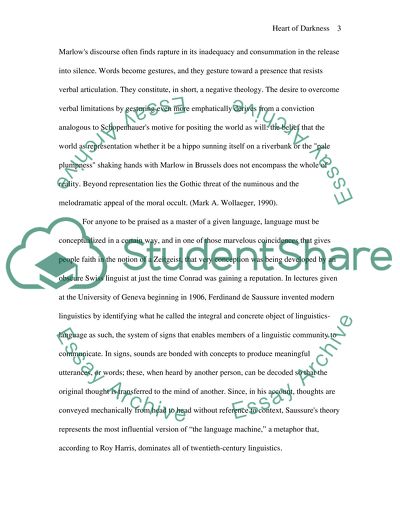Cite this document
(“Heart of Darkness by Conrad Essay Example | Topics and Well Written Essays - 2750 words”, n.d.)
Heart of Darkness by Conrad Essay Example | Topics and Well Written Essays - 2750 words. Retrieved from https://studentshare.org/literature/1514934-heart-of-darkness-by-conrad
Heart of Darkness by Conrad Essay Example | Topics and Well Written Essays - 2750 words. Retrieved from https://studentshare.org/literature/1514934-heart-of-darkness-by-conrad
(Heart of Darkness by Conrad Essay Example | Topics and Well Written Essays - 2750 Words)
Heart of Darkness by Conrad Essay Example | Topics and Well Written Essays - 2750 Words. https://studentshare.org/literature/1514934-heart-of-darkness-by-conrad.
Heart of Darkness by Conrad Essay Example | Topics and Well Written Essays - 2750 Words. https://studentshare.org/literature/1514934-heart-of-darkness-by-conrad.
“Heart of Darkness by Conrad Essay Example | Topics and Well Written Essays - 2750 Words”, n.d. https://studentshare.org/literature/1514934-heart-of-darkness-by-conrad.


